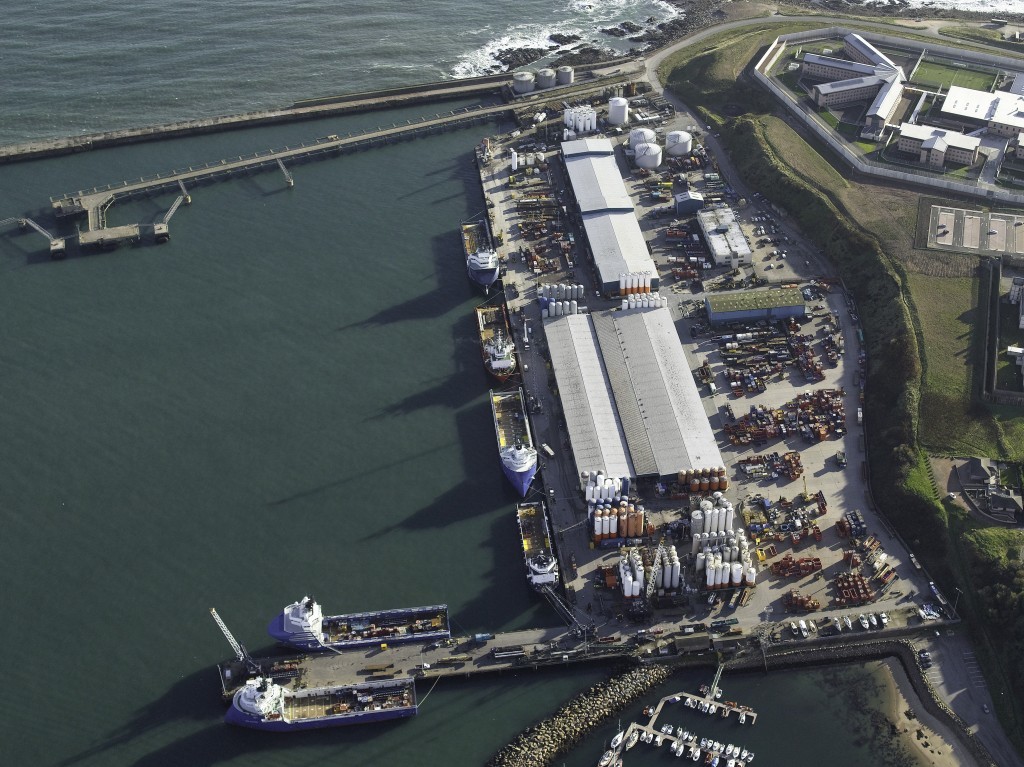
The Scottish town of Peterhead, the U.K.’s largest fishing port, always had a rebellious streak.
It supported the Jacobite uprising against the British monarch in the 18th century and, more recently, the region turned into one of the earliest strongholds of the pro-independence Scottish National Party. Now it’s threatening to abandon the nationalists and turn to the Conservatives, becoming a bastion of Prime Minister Theresa May’s drive to leave the European Union when Scotland overall opposed it.
“I’ll be voting Conservative,” said Jacqueline Bruce, 50, who was walking with her granddaughter in the town. “I don’t want independence, that’s the main reason. Years ago I would have voted SNP, but I don’t think they’re doing a good job.”
The political dynamic in Scotland is different to the rest of the U.K., with the dominant nationalists looking to see off a challenge by the Conservatives in Thursday’s election. Because of the fishing industry, Peterhead is also a town where the forces of leaving the U.K. and leaving the EU collide with potentially disruptive consequences.
The SNP has run the semi-autonomous government in Edinburgh for the past decade and is pushing for another vote on independence at the end of the Brexit negotiations. First, the party needs to reinforce its mandate by retaining most of its lawmakers in the U.K. Parliament after winning 56 of 59 districts in 2015. The Conservatives, or Tories, haven’t held more than one since 1997.
Brexit Plaice
May’s effort to make Brexit dominate the election seems to have resonated more in the fishing communities in the northeast than SNP leader Nicola Sturgeon’s promise of an independence vote.
Peterhead’s fleet lands more white fish than anywhere else in Europe, but the industry has shrunk amid EU restrictions imposed to protect fishing stocks. The town has also been hit by the drop in the oil price, which crippled the North Sea industry further south in Aberdeen.
A group called “Fishing for Yes” was founded to back the campaign for independence before a referendum in 2014, with some fishermen seeing breaking away from the rest of the U.K. as the way to wrest more control over North Sea waters.
That changed with the Brexit vote, with several of the group’s most prominent members coming out in favor of Brexit and the Scottish Conservatives promising to abandon the EU’s Common Fisheries Policy in favor of protecting U.K. interests. That policy, which sets quotas for European fleets, hit the industry hard in the 1980s.
“Scottish independence doesn’t float anyone’s boat in the Scottish fishing industry,” said David Leiper, who has worked as a fish processor for 21 years and is chairman of the Scottish Seafood Association. “The SNP have lost a huge amount of support they had in the industry. They just say what suits their wider policy.”
Salmond’s Shadow
The district of Banff and Buchan, in which Peterhead is the largest town, was first won for the SNP by Alex Salmond in 1987 before he later became the party’s leader and then Scotland’s first minister. In recent years, people here rejected independence in the 2014 referendum and were among Scotland’s most enthusiastic supporters of Brexit in the vote last year.
Read More: a QuickTake Explainer on Scotland’s Independence Bid
The Conservatives are pitching themselves as the only party that can stop the SNP’s pursuit of independence while the nationalists say only they can challenge the U.K. government’s austerity and exit from the European single market. In the background is also the SNP’s record in office in Scotland running key areas such as education, health and transportation.
“You’ll probably find Peterhead is quite Conservative at the moment,” said plumber Sean Bruce, 30. “The SNP have been in charge for 10 years and education is the worst it has ever been. I can’t get excited about the independence thing because I don’t think it’s going to happen anyway.”
A walk around Peterhead on a weekday afternoon shows none of those traditional markers of urban decline — boarded-up shops, homelessness, decay — but local people say they are disappointed with how things are going.
“The SNP have had ten years to fix things and they haven’t,” said Marion Polson, 65, as she sat with a friend in Peterhead’s central square. “If you look at the other side of town it’s a disgrace, there’s nothing there. People are worried about jobs and housing.”
Job Worry
More people now work in the services industry or are self-employed, and the wealth gap between the oil-rig workers and fishermen and those on lower wages is striking, said SNP candidate Eilidh Whiteford. She is bidding to win the district for the third straight election.
The Conservatives, meanwhile, hope to benefit from the discontent and win it for the first time since 1983. Conservative candidate David Duguid said people just want to get on with Brexit and are bothered by the prospect of another independence referendum at the end of the talks.
Heading down the hill from the center of town toward the harbour, the smell of fish fills the air. Several fishermen stand next to a boat, but otherwise the harbour is empty.
Leiper at the Scottish Seafood Association said the only reason he voted for Brexit was to protect his job. His wife is Italian. “I started as a laborer, icing boxes of fish,” he said. “I’ve seen thousands of jobs go, but we’re still here.”
Recommended for you
